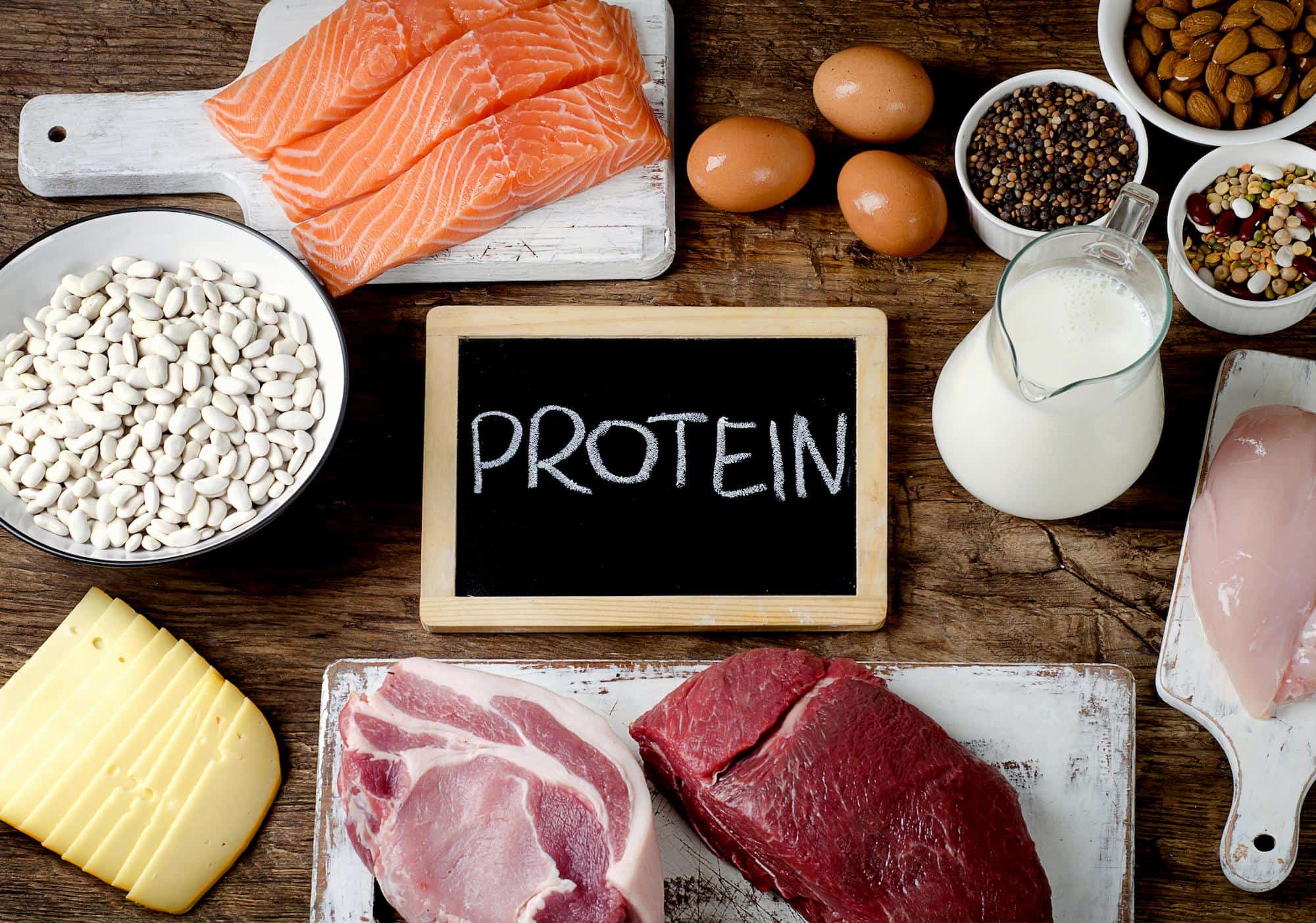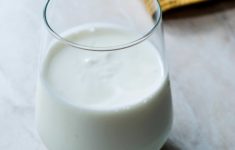Protein intake, protein to-go meals, shake-and-take protein drinks, protein desserts, protein diets… Today’s fitness market and media sections are full of information and products of this significant component of our diet.
It is common knowledge that protein plays a vital role in the proper functioning of our bodies, but it is often associated solely with chemical products and dietary supplements.
It should be noted that protein and protein intake may be beneficial for everyone when used properly or according to individual requirements. This relates to the complete diet in a person’s lifestyle or fitness regimen that must respond to your individual need for protein in order to maintain health and wellbeing.
After learning that you should include protein-rich food on your plate, you probably wonder how much protein should I have to stay healthy.
Regardless of whether you want to build muscle mass, lose weight, boost your endurance during workouts, or just maintain good health, here is some detailed information regarding the average suggested protein intake for individuals.
Table of Contents
How Much Protein Should an Average Person Have
The word “protein” originates from the Ancient Greek word “protos”, meaning primary element. Protein is the fundamental component of our body cells, and it is responsible for our muscle function, physical strength, and toning.
Moreover, protein is crucial for muscle recovery after intense workouts. Protein may be animal or plant-based, however, when taken in the right amounts, it creates a healthy body and strong muscles.
Each individual needs a different amount of protein, and this depends on several key factors such as the quality of protein, your sex, the level and intensity of daily physical activities, your calorie intake, your hormone profile, the volume of training, and even your gut health.
In general, an average person should consume 12 to 15 % of protein through their daily energy, i.e. calorie intake. According to the DRI (Dietary Reference Intake) that is 0.8 grams of protein per a single kilogram of body weight or 0. 36 grams per pound.
Most of the people need no more than 0.8 grams of protein per single kilogram of body weight. According to experts, an average sedentary woman needs 46 grams per day while an average sedentary man no more than 56 grams.
However, professional sports practitioners and athletes are in need of a double amount of protein as they are engaged in intense physical activities on a daily basis. For example, an active athlete who weighs 165 pounds would need 130 grams of protein per day.
Protein Intake for Weight Loss
If you consider losing weight, you should have in mind that your eating habits matter more than your time spent in the gym. There are numberless diets that may help you win the battle with extra pounds, however, each of them is based on the restriction and balance of daily calorie intake.
In addition, protein intake is one of the crucial elements that will affect your ability to shed excess fat. When planning your diet, you ought to make a structured apportionment of nutrients that you will consume daily, including protein.
If you want to lose weight, focus on having between 1.6 and 2.2 grams of protein per kilogram of body weight, or .73, and 1 gram per a single pound. Persons engaged in intense workouts or athletes should consume the amount above this average, i.e. 2.2 – 3.4 grams of protein per kilogram or 1- 1.5 grams per pound.
One of the advantages of protein as a macronutrient is that it provides a high level of satiety and therefore, reduced feeling of hunger.
High protein foods for weight loss include beans, lentils, broccoli, Chinese cabbage, eggs, beef, poultry, salmon, oats, tempeh, spirulina, hemp seeds, guava, chickpeas, quinoa, Greek yogurt, milk, almonds, seeds, avocado and cottage cheese.
Many of these foods contain not only protein but also beneficial unsaturated fat that provides satiety and keeps you full for a longer period of time. Also, they are rich in fibre and nutrients such as magnesium, potassium, and a number of vitamins and minerals.
According to scientific dietary research, individuals who consume high protein snacks can go long hours between meals and end up eating less food than usual while still feeling full.
The source of protein doesn’t make a crucial difference in satiety to most people and, nevertheless, results in lean body mass during calorie restriction.
One of the greatest benefits of taking protein while losing weight is that it is less likely to be stored as fat in the body in comparison to carbohydrates and fats that are stored with 80 – 90 % efficiency when being consumed in larger quantities.
How to Calculate How Much Protein You Need
When calculating your protein needs, you can start by identifying and determining your total calorie intake per day so you can target the number of grams of protein you ought to consume daily.
Also, you can do the math by calculating your body weight, your level of physical activity and your lean body mass.
After you had calculated your daily calorie intake, multiply that number by 10% and 35 % to get the final number. For example, a person who consumes 1500 calories per day is recommended to take 350- 400 calories of protein.
To count the protein grams per day needed, try out this calculation as well: a gram of protein equals four calories. Divide the two calorie range numbers by four. For example, a person who consumes 1500 calories per day should take 46 to 56 grams of protein.
A very active individual or a person who exercises on a regular basis, it means you need more protein, In that case, you can calculate protein intake by multiplying 0.7 to 0.8 grams of protein per pound of body weight.
The calculation of protein intake according to lean body mass (LBM) implies to determine your lean body mass (bones, muscles, organs, tissues, and water).
Subtract the per cent of your body fat (through BIA scales, DeXa scans, or skin callipers) from your total body mass.
Then, calculate the body fat in pounds and multiply the body weight by the body fat percentage. Lastly, do the calculation of your lean body mass. Subtract the body fat weight from the total body weight.
If you are physically inactive, multiply your LBM by 0.5, or multiply by 0.8 if you are active ( one hour of working out, 4- 5 times per week).
Does Protein Have Side Effects
Just like with any other nutrient, you should take protein moderately. Some people exceed their recommended daily intake and thus may find themselves facing side effects that can harm their health.
The general rule is that taking a large amount of protein does not essentially lead to rapid and more advanced results in your fitness goals.
On the contrary, an excessive amount of protein in your diet may lead to disrupted metabolism, weight gain, dehydration, nausea, intestinal discomfort and indigestion, unexplained exhaustion and fatigue as well as irritability, headache ad diarrhea.
When too much protein collects in the organs, their function is hindered, and this leads to the condition known as amyloidosis. Amyloidosis affects the nervous and the cardiovascular system, the liver, kidneys, spleen as well as the intestines [1].
Moreover, excess protein is usually stored as fat through the surplus of amino acids is exerted from the body. Individuals who opt for high protein diets usually lose weight while consuming only protein.
However, this cannot be maintained in the long run, and it often results in the opposite effect of weight gain once other nutrients are reintroduced in the dietary regimen.
Be careful not to rely solely on protein supplements in order to meet the recommendations for your protein intake. Products such as protein shakes and protein bars are a convenient choice on-the-go, but they should only add to your versatile, protein-rich diet that would contain proper food.
If you opt for protein supplements to enhance fitness results, you might want to try whey protein as one of the cleanest, easily soluble forms of protein extracted from milk.
The Bottom Line
To sum up, protein is the foundation of muscle mass and function. It is an essential nutrient for our diet as it provides energy, strong muscles, and boosts overall health.
All the same, protein intake should be carefully measured before you consider increasing or decreasing its amount in your diet. The optimal intake will keep your body healthy and strong, while protein surplus may harm a number of bodily functions.
It is very important to remember that, above all, protein ought to be taken through food that is healthy and nutritious while protein supplementation should be considered as an additional boost element that will help you obtain your fitness goals.
The combination of various types of protein, both animal and plant-based in the right amount with a well-structured training of physical exercises is the best solution to a get a strong, lean and healthy body.






